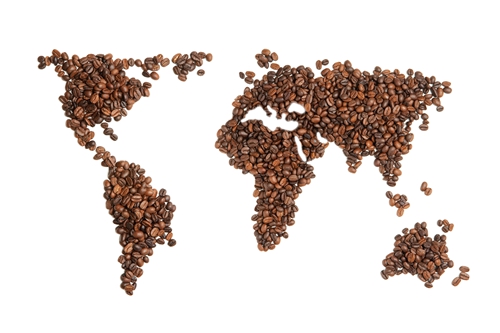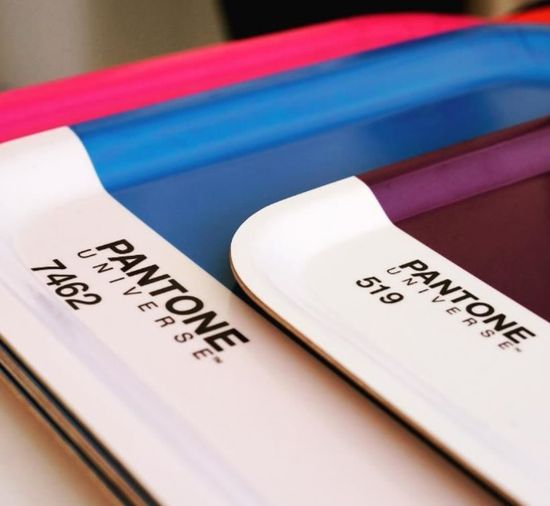Pu'er Coffee fragrance "Belt and Road Initiative" Chinese Coffee producing area Yunnan small Coffee

Pu 'er, not only has the reputation of "China Tea City", but also has the name of "China Coffee Capital". Coffee industry has become one of the characteristic agriculture of Pu' er Plateau and an important pillar industry for building a national green economy experimental demonstration zone. With the east wind of "One Belt and One Road", coffee carries the dream of Pu 'er people to the world.
Pu 'er coffee cultivation began at the end of the 19th century and began to develop industrially in 1988. In recent years, Pu' er coffee has been recognized as a class of products by the International Coffee Organization for its excellent internal quality. At the same time, with Pu 'er City becoming the main coffee producing area with the largest coffee planting area, the highest yield and the best quality in China, the popularity and influence of "Pu' er Coffee" brand abroad are gradually increasing.
The implementation of the "Belt and Road" strategy has brought a good opportunity to the development of Pu 'er coffee industry, and once again set off an upsurge in the development of Pu' er coffee industry. With the goal of building "China Coffee Capital" and creating "Pu 'er Coffee" brand, the city held three Pu' er Coffee Green Bean Competition and three Hundred Cities, Thousand Restaurants and Ten Thousand People Drinking Pu 'er Coffee and China Pu' er Coffee Cup World Siphon Pot Competition. In 2013, Pu 'er Coffee obtained the certification trademark of agricultural geographical indication of the State Administration for Industry and Commerce and the registration certificate of agricultural geographical indication of the Ministry of Agriculture. In July 2014, Yunnan Coffee Trading Center was listed in Pu 'er and launched the first China Fine Coffee Auction.
The development of the industry needs to be driven by a perfect mechanism. Pu 'er City constantly improves the coffee industry development mechanism from aspects of scientific research, talents, quality management, policy support, etc. First, improve and perfect the scientific and technological support system. Actively build the National Key Laboratory for Coffee Testing, Yunnan Arabica Coffee Breeding Base of Ministry of Agriculture, Coffee Innovation Center of Chinese Academy of Thermal Sciences, Southwest Yunnan Coffee Meteorological Service Center, Coffee Product Quality Supervision and Inspection Center of Pu 'er City and Coffee Research Institute have been established and put into operation successively. Pu' er has become the national coffee research and teaching base. Second, actively promote the international quality control system. Introduce international certification systems such as EU, US and Japan organic certification, UTZ certification, Rainforest Alliance certification and 4C certification; encourage and support coffee enterprises, coffee professional cooperatives and coffee growers in the city to carry out coffee garden certification. Third, establish and improve industrial development service and management mechanism. Pu 'er City Coffee Industry Development Office, the first coffee industry administrative organization in China, was established to be responsible for the coffee industry service and management of the whole city. Fourth, the Decision of Pu 'er City on Accelerating the Development of Coffee Industry was issued, which clarified the supporting policies for the development of coffee industry.
In order to boost the development of Pu 'er coffee industry, Pu' er Inspection and Quarantine Bureau closely adheres to the center of Pu 'er ecological establishment, green development and leapfrog development, closely follows the national strategy, takes advantage of the situation, and takes advantage of the situation. In the work of careful control and devoted service, Pu' er coffee, which has not been known to people living in deep mountains for a long time, goes abroad and goes to the world.
The backbone of the business will be transferred from the whole situation, and one-stop service measures will be adopted. Party members will lead the team to go deep into coffee export production enterprises to help enterprises establish and improve coffee quality management system. From the aspects of quality management system operation, employee training, product traceability, self-inspection and self-control and sanitary control of processing process, enterprises will be carefully guided and strictly supervised to standardize production and processing according to the requirements of quality management system, strengthen production site management, and make it in line with international standards. Ensure the quality of exported coffee products. In 2014, AQSIQ officially approved Pu 'er to establish a "National Coffee Industry Famous Brand Demonstration Zone", and Pu' er became the first coffee famous brand establishment demonstration zone in China.
Technical support is the key to serving the development of coffee industry. In September 2014, the National Key Laboratory for Coffee Testing passed the acceptance test in Pu 'er Inspection and Quarantine Bureau. This is the only national professional laboratory for coffee products in China, filling the gap in professional laboratories for coffee products in China and building a multifunctional service platform for coffee industry inspection and quarantine, arbitration, scientific research, personnel training and foreign technical exchange. At present, the laboratory has carried out more than 180 tests on pesticide residues, heavy metals, physical and chemical items, etc.
Quality is the core of the product. In order to effectively prevent and control pesticide residues in coffee, Pu 'er Inspection and Quarantine Bureau has carried out investigation and research on coffee ecological environment, pesticide residues and pollutants in Pu' er City, and applied for self-supporting science and technology projects. At the same time, in view of the fact that China still lacks the right to speak and price coffee quality evaluation in international trade, Pu 'er Inspection and Quarantine Bureau has declared to carry out research on coffee cup testing technology, and has gradually obtained the right to speak on coffee cup product evaluation, and on behalf of the state export coffee, dialogue, exchange and cooperation with the testing institutions of export target market countries and regions on coffee cup products and defects. In view of the lack of applicable, authoritative and highly targeted standards in the inspection and quarantine process of export coffee, Pu 'er Inspection and Quarantine Bureau applied for the industry standard "Inspection and Quarantine Regulations for Export Small Coffee Beans." At present, the standard has been approved, and the implementation of the standard will further lay a foundation for the inspection and quarantine department to establish an authoritative working position in coffee inspection.
At present, the coffee industry in Pu 'er City has stepped into the track of standardized operation, with unified production technology and consistent product quality, so that Yunnan small coffee, once locked in the mountains and unknown to people, can show its elegant demeanour to more people in the world. In 2014, the city's coffee planting area was 757,000 mu, with 402,300 mu put into production, 39,900 tons of output, a total output value of 1.2 billion yuan, exports of 28,200 tons and foreign exchange of 69 million US dollars. More than 300,000 mu exported to more than 30 countries and regions such as America, Europe and Asia obtained 4C certification. The coffee gardens of 33 enterprises passed the organic certification of the United States, the European Union and China and entered the conversion period. More than 20,000 mu coffee garden has obtained Rainforest Alliance certification and UTZ certification. Pu 'er has become the main coffee producing area and coffee trade distribution center with the largest planting area, the highest yield and the best quality in China.
China Inspection and Quarantine July 2015
Important Notice :
前街咖啡 FrontStreet Coffee has moved to new addredd:
FrontStreet Coffee Address: 315,Donghua East Road,GuangZhou
Tel:020 38364473
- Prev

The most worthwhile coffee restaurant ever shared with Instagram
Pantone is an authoritative organization specializing in color research and development, and its Pantone color cards and color numbers have become the lingua franca of designers. Recently, the company, which publishes annual color trends, opened a coffee shop on the beach in Monaco. This may be the gospel of aesthetic obsessive-compulsive disorder. It is said that when these people see anything, they want to take a color with a straw. Look.
- Next

Chongqing may become the third largest coffee futures trading center in the world.
■ Zhuang Guanrong Zhou Xiaoli's first Yuxin Europe international train loaded with Yunnan Hougu coffee recently left Tuanjie Village in Chongqing and arrived in Duisburg, Germany 14 days later, saving 2/3 of the time compared with traditional trade shipping and greatly reducing the cost for enterprises. In the next step, Chongqing will make full use of its geographical advantages to connect the maritime Silk Road, the golden waterway of the Yangtze River and the land silk economic belt.
Related
- Can lightly roasted coffee beans be used to extract espresso? How finely should you grind high-quality coffee beans to make Italian latte?
- What is the difference between the world's top rose summer coffee and Yejia Shefi? What are the flavor characteristics of Yega Shefi coffee and Panama rose summer?
- The ceremony is full! Starbucks starts to cut the ribbon at a complimentary coffee station?!
- A whole Michelin meal?! Lucky launches the new "Small Butter Apple Crispy Latte"
- Three tips for adjusting espresso on rainy days! Quickly find the right water temperature, powder, and grinding ratio for espresso!
- How much hot water does it take to brew hanging ear coffee? How does it taste best? Can hot water from the water dispenser be used to make ear drip coffee?
- What grade does Jamaica Blue Mountain No. 1 coffee belong to and how to drink it better? What is the highest grade of Blue Mountain coffee for coffee aristocrats?
- What are the flavor characteristics of the world-famous coffee Blue Mountain No. 1 Golden Mantelin? What are the characteristics of deep-roasted bitter coffee?
- Can I make coffee a second time in an Italian hand-brewed mocha pot? Why can't coffee be brewed several times like tea leaves?
- Hand-brewed coffee flows with a knife and a tornado. How to brew it? What is the proportion of grinding water and water temperature divided into?

